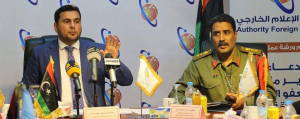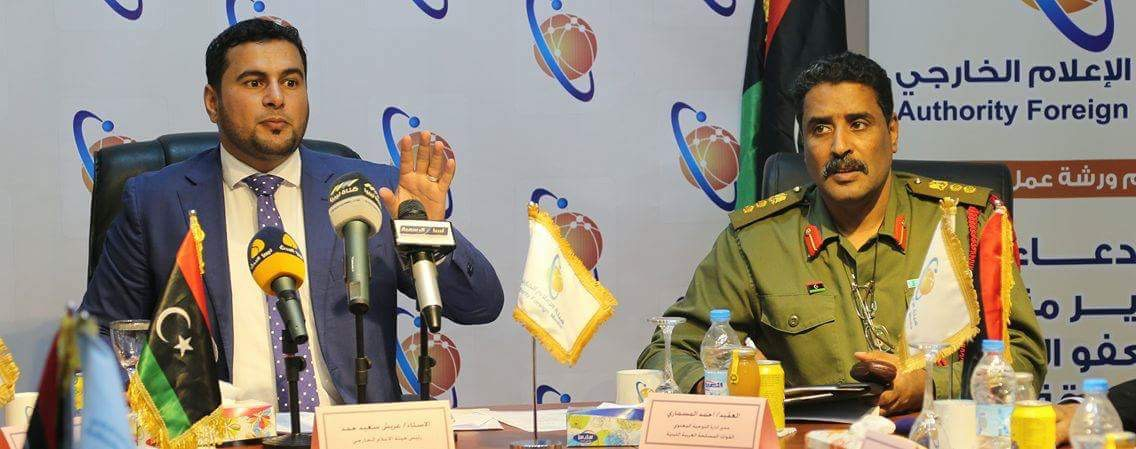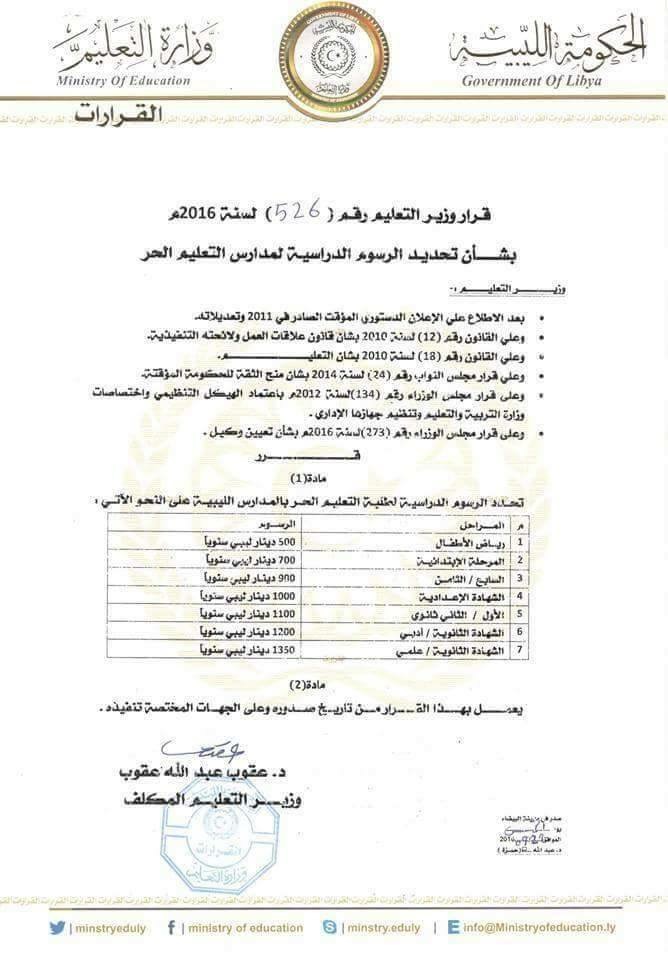By Maha Ellawati.

Benghazi, 7 October 2016:
The eastern Libyan authorities have denied claims made in an Amnesty International (AI) report accusing the Libyan National Army of shelling of civilians trapped in the Ganfouda area of Benghazi.
The denial came in a workshop organised by the eastern-based Foreign Media Authority (FMA) which referred to the contents of the AI report as “fabricated” by an organisation “supposed to be a neutral party in dealing with international issues”.
“The war [against the terrorists] is about to end and the army heroes have achieved major victories on the ground and all the rumours of allegations and accusations are defamation of the Libyan military,” said LNA spokesman Colonel Ahmed Mismari at the event. He claimed that the allegations of human rights abused were being used for what he called dangerous political purposes. At the very least, those who wrote the report were failing in the task they were charged with, he said.
The LNA was in contact with families and foreign labourers trapped inside Ganfouda and had offered them a safe passage out, he said. The LNA had dropped leaflets by plane and there had been coordination with the Red Crescent society. The LNA was fully prepared to cooperate with human rights organisations in order to get those trapped in Ganfuda out. The problem, he said, was not with the LNA, but with the extremist groups and their families who refused to leave and who were using the other families as human shields. The basic problem was that the “extremist terrorist groups reject the safe exit of civilians’’, he stated.
The aim of the workshop was designed to highlight what the LNA said had really been happening during the conflict in the city. There was, according to FMA head Arish Saeed, a need to communicate effectively with the Arabic and international media so as to convey the true facts and events.
“This is huge media project dealing with lists of facts and events and victims of landmines planted by terrorist groups inside residential neighbourhoods in Benghazi that were controlled by terrorist groups before being freed by the Libyan National Army’’.
There was a need, he said, to explain the Libyan issues and to provide factual information so that the world would know all about the terrorist groups that had been operating against civilians for more than two years in the city.
For his part, Khaled Najem, the head of the Culture, Media and Civil Society Organisations Authority, claimed there was an international conspiracy against the Libyan people. It had become clear early on, he said, adding that there were media accomplices and media organisations which he insisted were funded by extremist groups.
“We must admit that we have significant shortcomings in the political and media side. We act on the basis of reaction without keeping up with the actual events,” he said. Nonetheless, he stressed, there were a number of countries with real ambitions in the Arab region, and especially in Libya.
He did not state who these were, other than saying that after the return of the oil crescent area to the LNA’s control, “many foreign states stated courting us for their interests and objectives”. But, he added, “we cannot equate those who stood along the Libyan people since the beginning of the war on terrorism and those who arrived belatedly after the victory of the people, its army and leadership in this war”.









